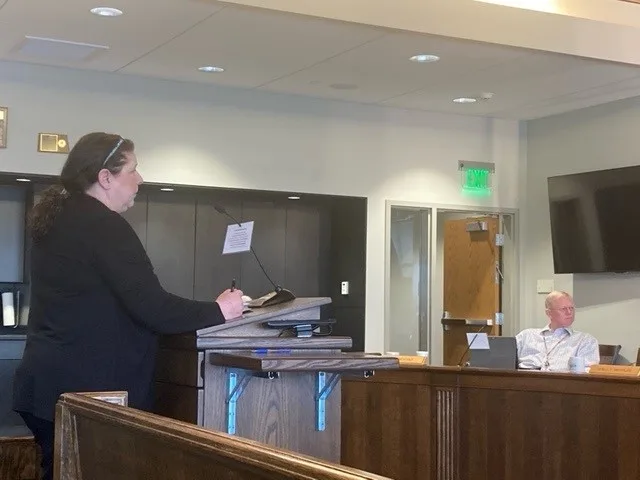

MINOT – The Ward County Commissioners attempted to help with a national issue of youth placement and approved Tuesday to move youth under the care of the Human Service Zone to a building in downtown Minot.
Kristi Frederick, Ward County Human Service Zone director, said the Human Service Zone is currently supporting county youth in the county administration building that cannot be cared for in other shelter care options, treatment facilities, or foster homes but are in need of care. The Human Service Zone is designed to place children in already existing care facilities, but with new laws passed requiring the separation of youth populations, some of the youth care falls into the hands of the Human Service Zone.
“Instead of having that be in the county administration building we would do that in the Morgan Printing building if we’re given permission to do that,” said Frederick.
The Morgan building is located downtown near the administration building. It is already owned by the county.
“We just wanted to give it a more home-like feel,” Frederick told The Dakotan.
The Human Service Zone Board asked for a general cost estimated fund for basic preparation needs within the building such as painting walls, finishing floors, and hooking up washer and dryer machines. The board also asked for different options of cameras to fulfill the security needs ranging from about $3,000 to $5,000. The total expenses amounted to about $10,000 approved by the commissioners Tuesday.
“We’ve previously spent a lot of money on this building, so most of the basic needs should be in place. So I think hearing what we’ve heard about what’s been going on in the last few months with these kids, this would be a good investment,” said Commissioner Jim Rostad.
“We are not the only zone that has this need, and to date there has been no other resolution that’s come forth from the state,” said Frederick. “I cannot project how long we may find ourselves in this position where we’re providing care to children that have no other place to go.”
Frederick said this problem started a little after she began her position over a year ago.
“I know there have been jurisdictions that I have worked in, and it is an absolute problem, and it has been for years in some of those places,” said Frederick. “This is across the country. I’ve spoken with colleagues across the country and they are experiencing the same sorts of problems.”
Frederick believes a lot of these problems are arising due to new rules and legislation across the country requiring separation of youth who have committed crimes and youth that have acted in ways no longer deemed criminal.
“This is a change on the juvenile code side and it’s national,” said State’s Attorney Roza Larson. “Some of it is federal dollars. So they’ve recategorized some of these kids, so instead of being delinquents, they’re children in need of protection and they end up being the zone’s issue. Then they end up doing things that used to be delinquent but are no longer delinquent so they run away from the services that are provided, and it’s a hot mess, and it’s all because they redid juvenile codes.”
Frederick added that there is a national trend to shift away from congregate care which includes group homes.
“When that funding goes away and you can’t use some of the pots of federal money for congregate care, this is a national result,” said Frederick.